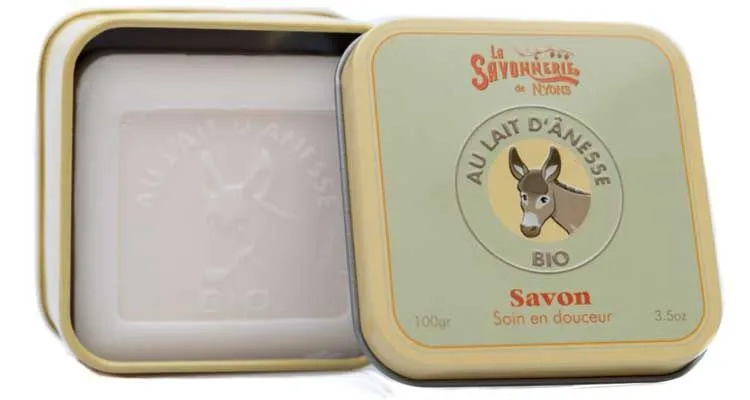In recent years, the consumption of donkey’s milk, and it seems that it is a new fashion linked to the attempt to connect with the rural world and the fact of taking different things or with a more ecological profile.
This dairy is nothing new, since it has been consumed by humanity for thousands of years.
Because of the current higher consumption, especially in many European countries, I want to analyze what are the benefits and disadvantages of donkey’s milk.
Table of Contents
What is the history of donkey’s milk?
Donkeys are animals domesticated by humans many years ago, and belong to the animal family Equidae, just like zebras or horses.
In addition to facilitating the transport of heavy loads, donkeys were also bred for milk production, and were even attributed medicinal benefits. Hippocrates mentioned it in several of his writings especially for its effect on coughing, wound healing and reduction of arthritis.
The famous Cleopatra, according to various stories, prepared milk baths to improve the appearance of her skin, moisturize and soften it.
African folk medicine uses it to treat skin infections caused by wounds, as it is attributed antimicrobial properties.
In many parts of the world this dairy is used in people who have an allergy to cow protein, although it is less and less used in place of vegetable dairy.
If we had to compare donkey’s milk with that of another animal, we can say that looks more like breast milk than the cow’s.
Today, this product is considered exclusive, since there is no such breeding donkeys for milk production, except in small cases with a very small number of herds.
On average, a donkey in production can produce 1 liter a day of milk, so it is quite difficult to find in the supermarket or in specialized stores.

Nutritional characteristics of donkey’s milk
Like any other dairy, its composition is very similar to that of other products, with high content of proteins, fats and mineral sources. The caloric intake comes almost in all the carbohydrates present in lactose.
To see the real differences with other dairy, this is the comparison with cow’s milk and with breast milk. 100 ml provide the following:
| Donkey’s milk | Cow’s milk | Breast milk | |
| Calories | 49 kcal | 61 kcal | 70 kcal |
| Proteins | 0 % | 3 g | 1 g |
| Carbohydrates | 6 g | 5 g | 7 g |
| Fats | 0 % | 3 g | 4 g |
| Cholesterol | 3% RDA | 3% RDA | 5% RDA |
| Vitamin d | 23% RDA | 9% CDR | 1% RDA |
| Calcium | 7% RDA | 11% RDA | 3% RDA |
| Vitamin B2 | 2% RDA | 13% RDA | 2% RDA |
*RDA: Recommended Daily Allowance
At the nutritional level, donkey’s milk provides less casein and more whey, so people allergic to cow’s milk can drink this animal milk.
In this whey protein is where activity can be found against the development of bacteria and viruses, according to some research. [See information]
Read more: 8 Fermented Foods Health Benefits
What are the benefits of donkey’s milk?
The fashion for donkey’s milk is also linked to the fact that it is attributed stimulating activity of the immune system and a lower presence of allergen substances. Its relationship between casein and whey is practically the same in donkey’s milk, different in the case of cow’s milk, with more casein compared to whey.
Although not all people allergic to cow’s milk can take donkey’s milk, its proteins do have less impact, so it can be more tolerant for people who suffer from this allergy.
A clinical study linked the consumption of donkey’s milk with a greater activity of cytokines in the body, linked to a process of stimulation of the immune system. [See study]
Important information was also obtained from this study at the cellular level. It seems that our cells are capable of producing more nitric oxide a very important component for the dilation of blood vessels and improve blood flow. [See study]
From here you can get benefits against the high blood pressure.
Read more: What is the difference between casein and whey protein?
Current disadvantages
There are no disadvantages at the nutritional level, or if they exist, they are intimately related to the same as cow’s milk.
The main disadvantage is commercial, since donkey’s milk is uncommercial, much more difficult to find and, therefore, its price becomes much more expensive than cow’s milk.
In fact, it is much more expensive to produce.
On the other hand, we must avoid the tendency to consume fresh untreated milk, since although it may have antimicrobial properties, it is possible that if the milk is not pasteurized, it will have a worse effect due to its high content of bacteria.
On the other hand, donkey’s milk is only intended for unprocessed consumption, since its low casein content makes it difficult to cheese preparation.

Alternative uses of this product
Dairy products are commonly used by the cosmetic industry in the preparation of different beauty and personal hygiene products.
Donkey’s milk is also an attraction for its rarity, making it from the point of view of marketing an attractive bet for consumption.
Therefore, we find different soaps and body lotions made from donkey’s milk, among other ingredients.
In addition, this product contains antioxidant and moisturizing properties that make its application on the skin interesting, especially to reduce the damage caused by sun exposure or looking for an anti-aging effect.
